Can’t get new lungs? Try refurbished ones instead.
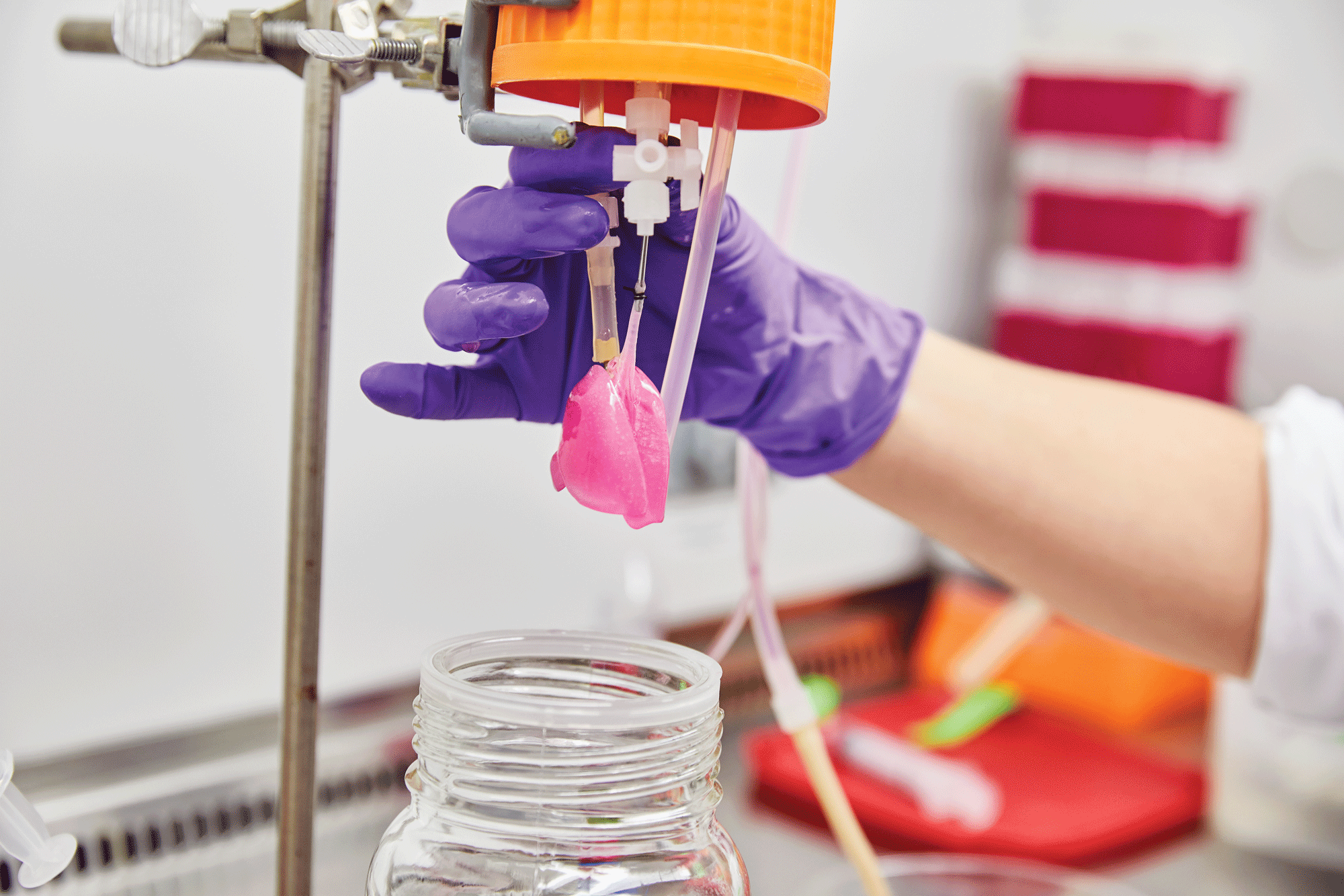
Harald Ott, a surgeon at Harvard Medical School, thinks that his lab’s unusual methods might someday solve the organ-transplant crisis. On average, 20 people in the United States die every day awaiting donor organs for transplant, according to the American Transplant Foundation. If Ott’s idea works, it could one day eliminate the need for an organ waiting list.
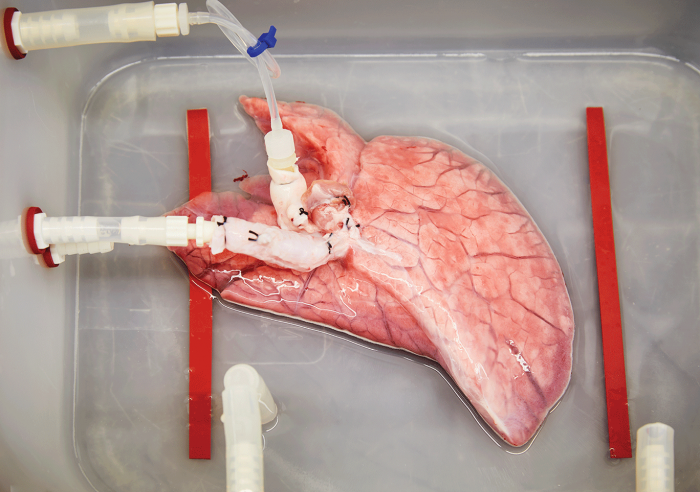
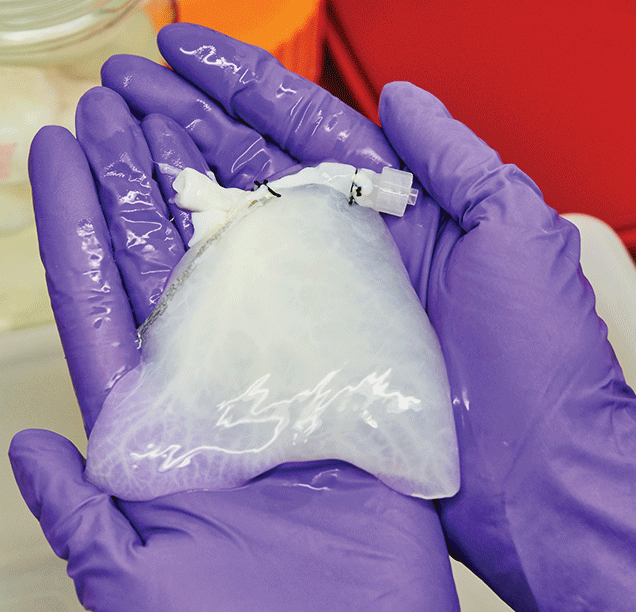
The lab chemically treats organs from rats and pigs to remove all their cells, leaving behind an empty scaffolding. The researchers then populate the scaffold with stem cells from a patient, hoping to create an organ that the human body will accept.
In the most recent work, the lab is using a technique Ott helped develop called lung regeneration, transforming lungs from rats and pigs into human--compatible ones. Though rat lungs aren’t suitable as human transplants, they provide an excellent means to test the regeneration procedure.
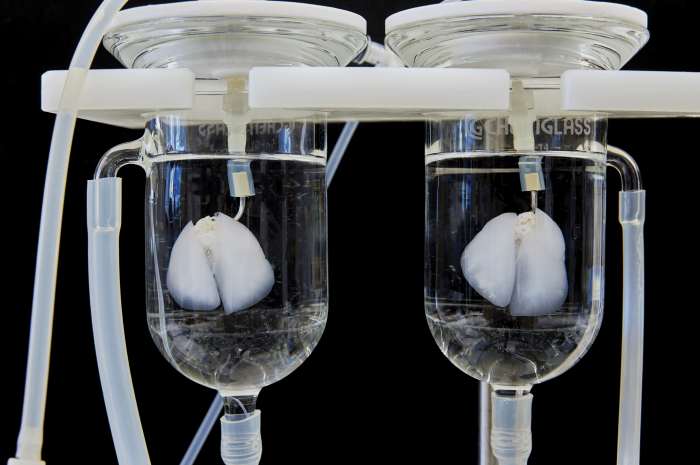
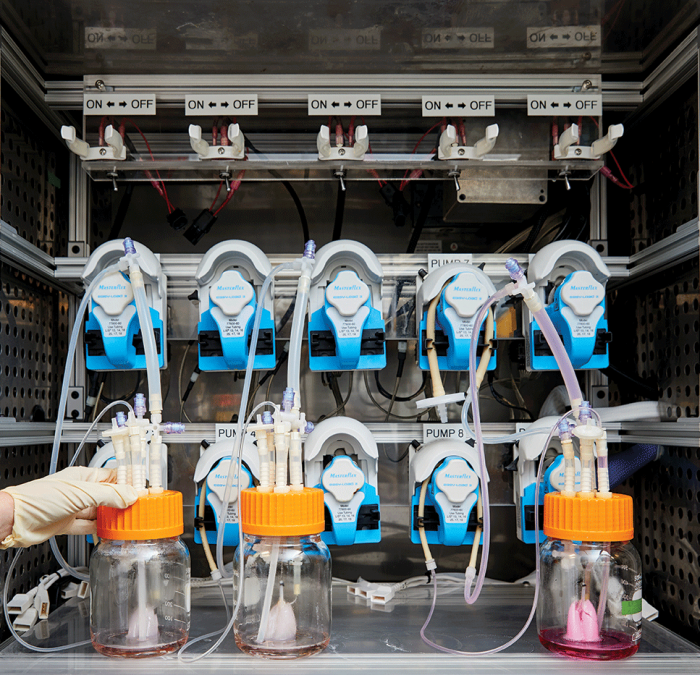
“I feel something we all share here is the belief this really could work.”
Ott originally began to develop this technique while studying at the University of Minnesota (see “Creating a heart”). In the decade since then, his lab has made strides in deciphering the conditions under which stem cells develop into functioning organs.
So far the team has been able to transplant organs re-created with human stem cells back into pigs and rats. Given that the organs have human cells foreign to the animals, they stay alive for only about a week. But the experiments are evidence that these organs can work in a living organism.
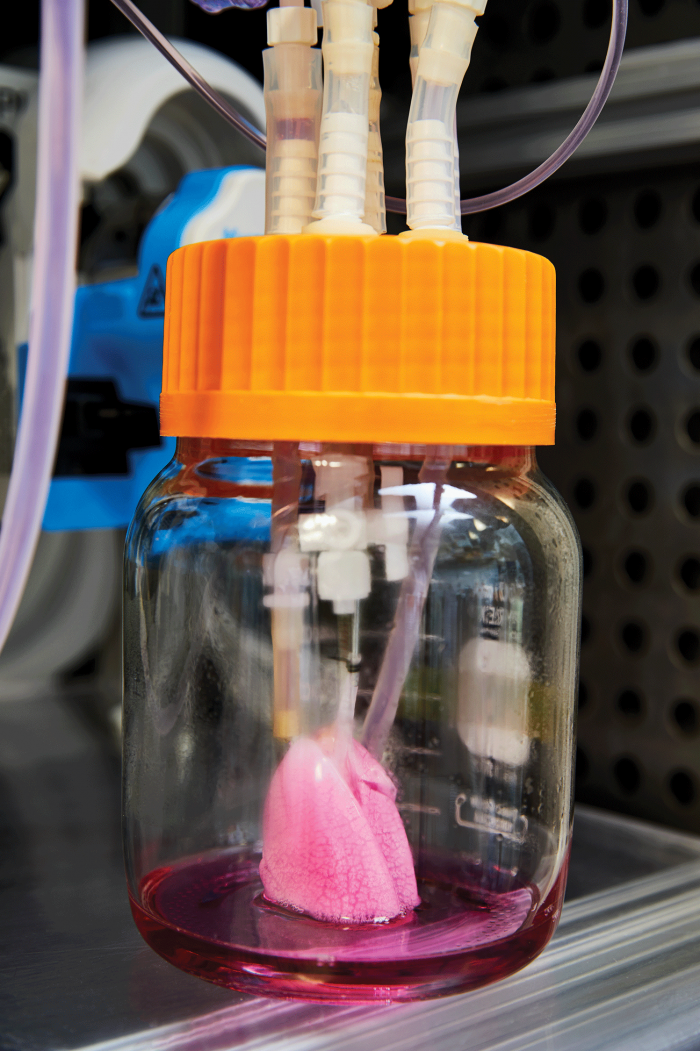
Deep Dive
Biotechnology and health
How scientists traced a mysterious covid case back to six toilets
When wastewater surveillance turns into a hunt for a single infected individual, the ethics get tricky.
An AI-driven “factory of drugs” claims to have hit a big milestone
Insilico is part of a wave of companies betting on AI as the "next amazing revolution" in biology
The quest to legitimize longevity medicine
Longevity clinics offer a mix of services that largely cater to the wealthy. Now there’s a push to establish their work as a credible medical field.
There is a new most expensive drug in the world. Price tag: $4.25 million
But will the latest gene therapy suffer the curse of the costliest drug?
Stay connected
Get the latest updates from
MIT Technology Review
Discover special offers, top stories, upcoming events, and more.